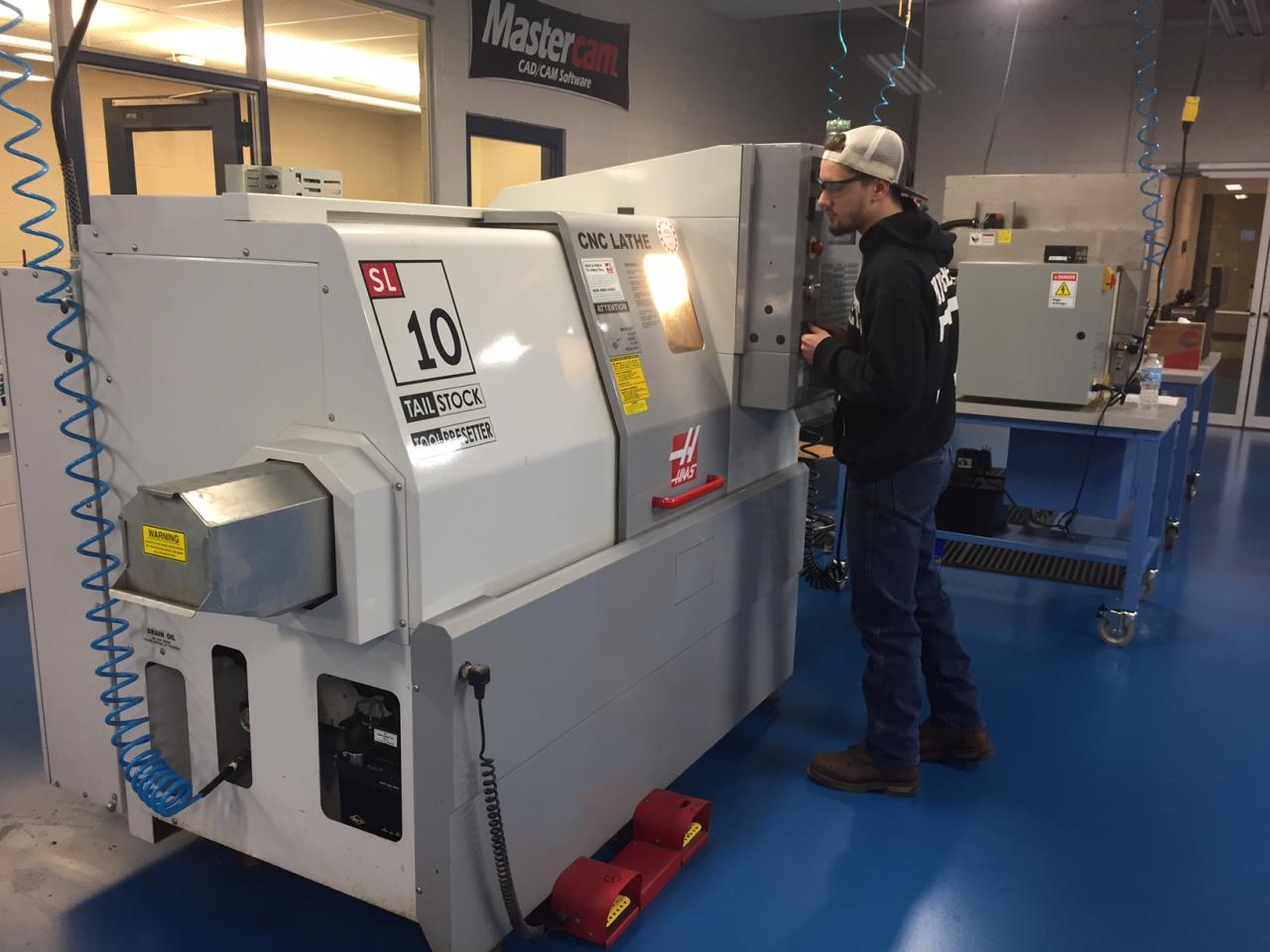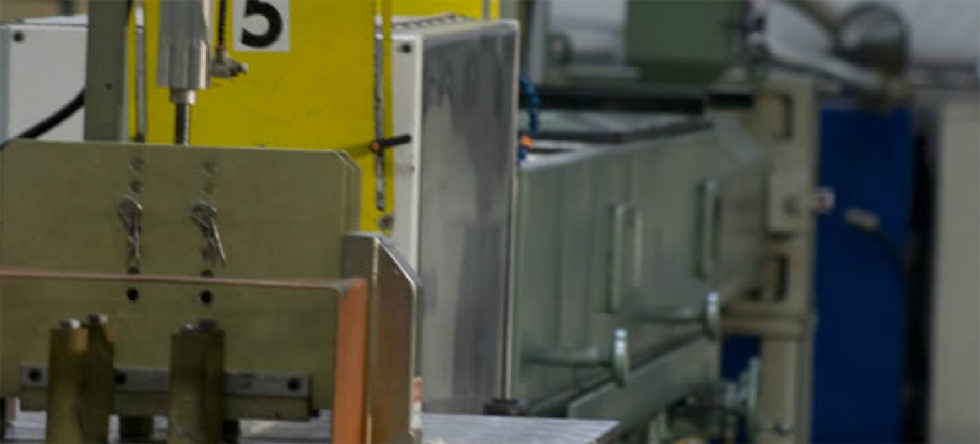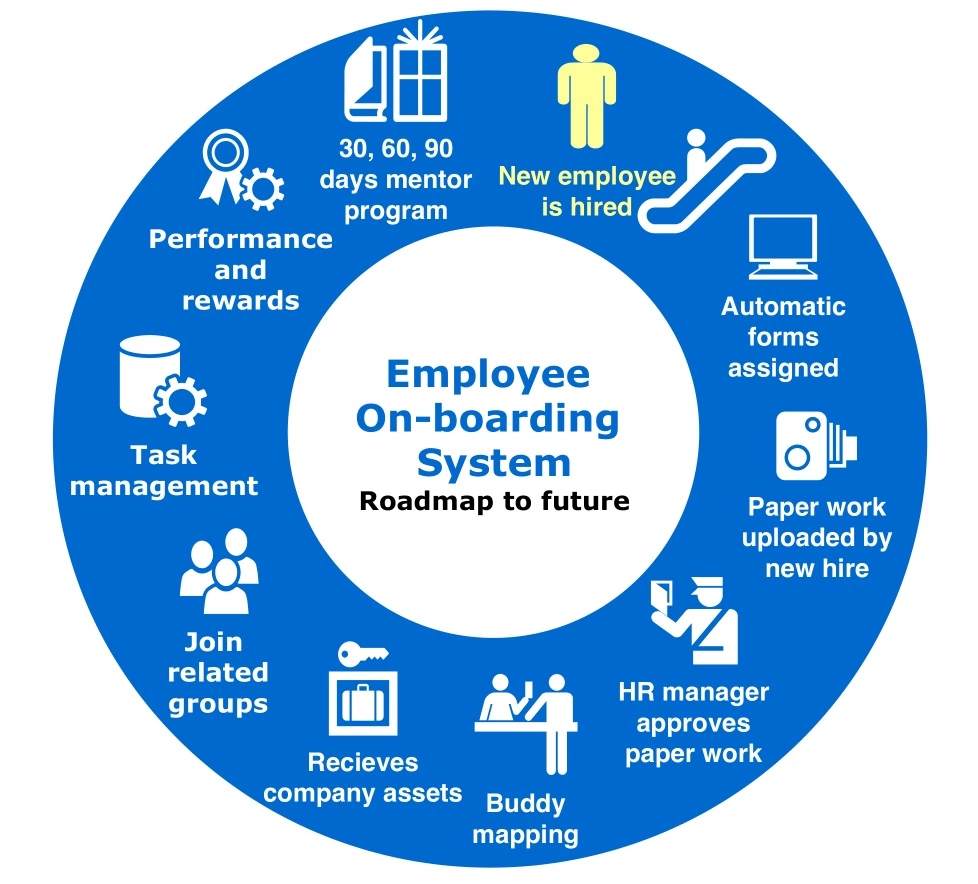Machine Tool Technology Jobs: A Modern Career Path
Machine tool technology jobs are at the forefront of manufacturing, offering a dynamic and rewarding career path. From the precision of CNC machining to the automation of robotic systems, this […]
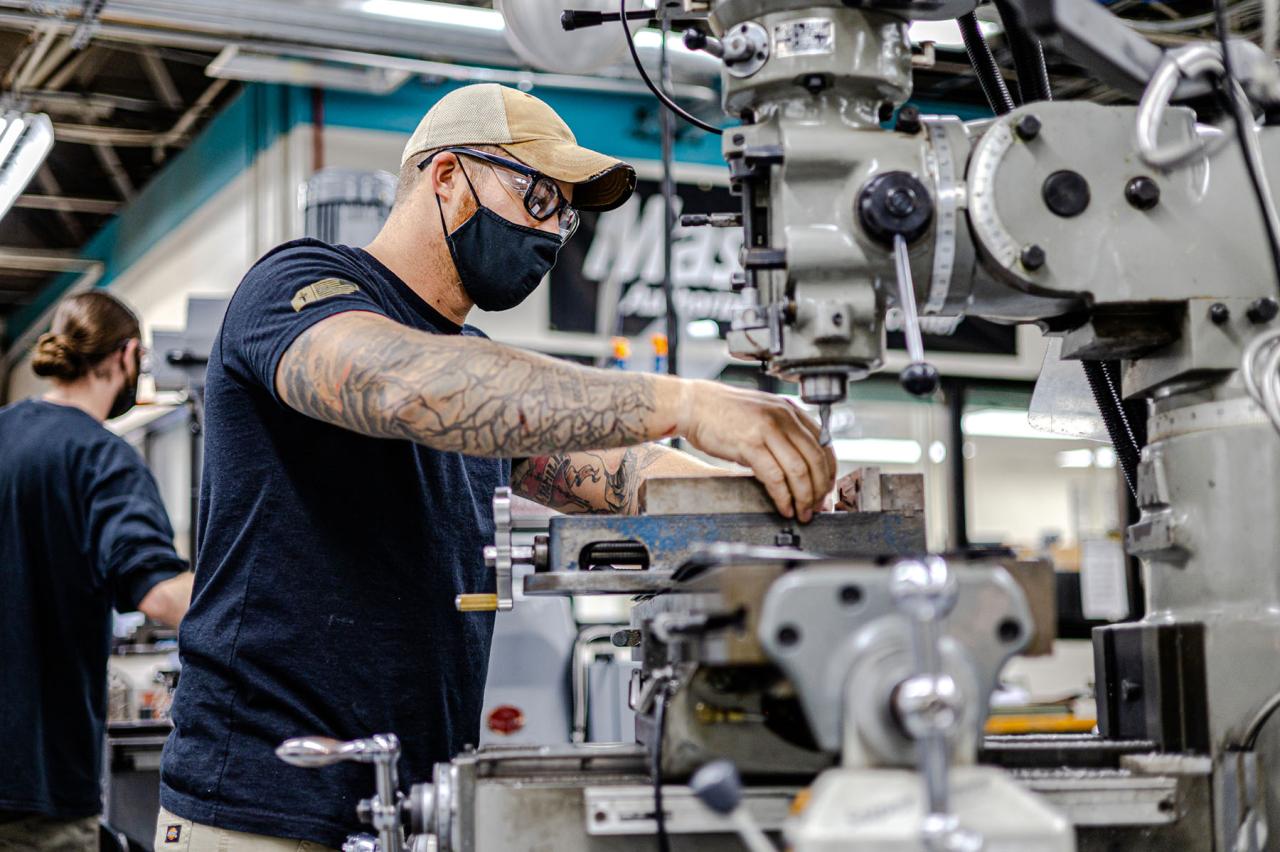
Machine tool technology jobs are at the forefront of manufacturing, offering a dynamic and rewarding career path. From the precision of CNC machining to the automation of robotic systems, this field has transformed how we create the products we use every day. With its roots in traditional craftsmanship, machine tool technology has evolved into a cutting-edge industry, incorporating advanced technologies and demanding skilled professionals.
This exploration will delve into the exciting world of machine tool technology jobs, uncovering the key roles, necessary skills, and promising future prospects. Whether you’re a seasoned professional seeking a new challenge or a recent graduate looking for a fulfilling career, the machine tool industry offers a diverse range of opportunities for those who possess the right combination of technical expertise, problem-solving skills, and a passion for innovation.
Education and Training for Machine Tool Jobs
A career in machine tool technology requires a blend of practical skills and theoretical knowledge. Individuals interested in this field can pursue various educational pathways to gain the necessary qualifications. These pathways range from vocational training programs to college degrees, each offering unique advantages and preparing individuals for specific roles within the industry.
Importance of Technical Skills and Certifications
Technical skills are paramount in the machine tool industry. They form the foundation for successful operation, maintenance, and troubleshooting of complex machinery. These skills encompass a wide range of competencies, including:
- Understanding of machine tool operations, including setup, programming, and operation.
- Proficiency in using various hand tools and measuring instruments.
- Knowledge of different machining processes, such as turning, milling, drilling, and grinding.
- Ability to read and interpret blueprints and technical drawings.
- Familiarity with computer-aided design (CAD) and computer-aided manufacturing (CAM) software.
- Understanding of safety procedures and practices related to machine tool operation.
Certifications play a vital role in demonstrating proficiency and validating an individual’s expertise in specific areas. These certifications are often recognized by employers and can provide a competitive edge in the job market. Some widely recognized certifications include:
- Certified Manufacturing Technologist (CMfgT): Offered by the American Society for Quality (ASQ), this certification validates knowledge of manufacturing processes, quality control, and lean manufacturing principles.
- Certified Manufacturing Engineer (CMfgE): Also offered by ASQ, this certification focuses on engineering principles related to manufacturing processes, design, and optimization.
- Certified Production Technician (CPT): Offered by the Manufacturing Skills Standards Council (MSSC), this certification validates proficiency in various manufacturing processes, including machine operation, quality control, and safety.
Hypothetical Training Program for a Machine Tool Technician
A comprehensive training program for a machine tool technician should equip individuals with a solid foundation in both theoretical knowledge and practical skills. Here is a hypothetical program designed to provide a well-rounded education:
- Introduction to Machine Tools and Machining Processes: This module covers the history, evolution, and fundamental principles of machine tools. It also introduces different machining processes, including turning, milling, drilling, and grinding.
- Machine Tool Operation and Safety: This module focuses on hands-on training in operating various machine tools, including lathes, mills, and drill presses. It emphasizes safety procedures and practices related to machine tool operation.
- Machine Tool Maintenance and Troubleshooting: This module covers preventive maintenance procedures, common machine tool problems, and troubleshooting techniques. It equips trainees with the skills to identify and resolve machine tool issues.
- Computer-Aided Design (CAD) and Computer-Aided Manufacturing (CAM): This module introduces trainees to CAD/CAM software used for designing and programming machine tools. It covers the basics of CAD modeling, CAM programming, and simulation.
- Quality Control and Inspection: This module focuses on quality control principles, inspection techniques, and the use of measuring instruments. It emphasizes the importance of maintaining high-quality standards in manufacturing.
- Advanced Machining Techniques: This module explores advanced machining processes, such as CNC machining, EDM machining, and laser cutting. It provides trainees with specialized skills for complex machining operations.
The Future of Machine Tool Technology Jobs
The machine tool industry is undergoing a significant transformation driven by technological advancements, evolving manufacturing needs, and a global shift towards automation. This evolution presents both challenges and opportunities for professionals in the field. The future of machine tool technology jobs will be shaped by the integration of emerging technologies, the need for skilled and adaptable workers, and the evolving nature of manufacturing processes.
The Impact of Emerging Technologies
The adoption of Industry 4.0 technologies, including artificial intelligence (AI), the Internet of Things (IoT), and cloud computing, is transforming the machine tool industry. These technologies are enabling greater automation, improved efficiency, and enhanced data-driven decision-making.
- AI-powered Machine Tools: AI is being used to optimize machine tool performance, reduce downtime, and improve accuracy. AI algorithms can analyze sensor data from machines, predict potential failures, and optimize cutting parameters for increased efficiency. This leads to more efficient and reliable manufacturing processes.
- IoT Connectivity: The integration of IoT in machine tools allows for real-time monitoring of machine performance, remote diagnostics, and predictive maintenance. This data can be used to improve efficiency, reduce downtime, and optimize production processes.
- Cloud-Based Manufacturing: Cloud computing enables manufacturers to access and analyze data from machine tools remotely, facilitating data-driven decision-making and collaboration across geographically dispersed teams. This enhances efficiency and provides real-time insights into production processes.
Skills and Knowledge for the Future
To thrive in this evolving landscape, machine tool professionals will need to develop a range of skills and knowledge.
- Digital Literacy: Professionals will need to be comfortable working with data, understanding machine learning algorithms, and utilizing data analytics tools.
- Programming and Automation: Expertise in programming languages, such as Python or C++, and experience with robotic systems will be essential for operating and maintaining automated machine tools.
- Problem-Solving and Critical Thinking: The ability to identify and solve complex problems related to machine tool operation, maintenance, and programming will be crucial.
- Adaptability and Continuous Learning: The rapid pace of technological advancements in the machine tool industry demands a commitment to continuous learning and the ability to adapt to new technologies and processes.
Skills and Qualifications for Machine Tool Jobs

The field of machine tool technology requires a unique blend of technical expertise, problem-solving abilities, and communication skills. To excel in this industry, individuals need to possess a strong foundation in mechanical principles, machining processes, and the ability to operate and maintain complex machinery.
Essential Skills and Qualifications
A comprehensive understanding of the core skills and qualifications is crucial for aspiring machine tool professionals. These skills are essential for success in various roles within the industry, from entry-level positions to highly specialized roles.
- Technical Expertise: A solid foundation in mechanical engineering principles, machining processes, and the operation of various machine tools is essential. This includes understanding concepts like cutting tools, machining parameters, tool geometry, and workholding methods.
- Problem-Solving Abilities: Machine tool operators and technicians frequently encounter challenges related to machine setup, tool wear, and part quality. The ability to diagnose problems, analyze data, and implement effective solutions is crucial for maintaining production efficiency and ensuring product quality.
- Communication Skills: Effective communication is essential for collaborating with engineers, supervisors, and other team members. The ability to clearly explain technical issues, provide feedback, and follow instructions is crucial for seamless operations and project success.
- Computer Proficiency: Machine tool technology is increasingly reliant on computer-aided design (CAD), computer-aided manufacturing (CAM), and numerical control (NC) programming. Familiarity with these software tools is essential for creating and modifying designs, generating machine code, and monitoring machine performance.
- Safety Awareness: Machine tool operations involve inherent risks. A strong understanding of safety protocols, proper use of personal protective equipment (PPE), and risk assessment is paramount for ensuring a safe working environment.
Skill Requirements for Different Job Roles, Machine tool technology jobs
The specific skills required for different job roles within the machine tool industry vary depending on the complexity of the tasks and the level of expertise required. Here’s a comparison of skills needed for some common roles:
| Job Role | Key Skills |
|---|---|
| Machine Operator | Operation of specific machine tools, understanding of basic machining processes, ability to read blueprints, and adherence to safety protocols. |
| Machine Technician | Troubleshooting and maintenance of machine tools, familiarity with various types of machines, ability to perform basic repairs, and knowledge of preventive maintenance practices. |
| CNC Programmer | Proficiency in CAD/CAM software, knowledge of CNC programming languages, ability to create and edit machining programs, and understanding of machine tool kinematics. |
| Machine Tool Engineer | Advanced knowledge of mechanical engineering principles, expertise in machine tool design and development, ability to analyze and optimize machining processes, and strong problem-solving skills. |
Challenges and Opportunities in Machine Tool Technology Jobs
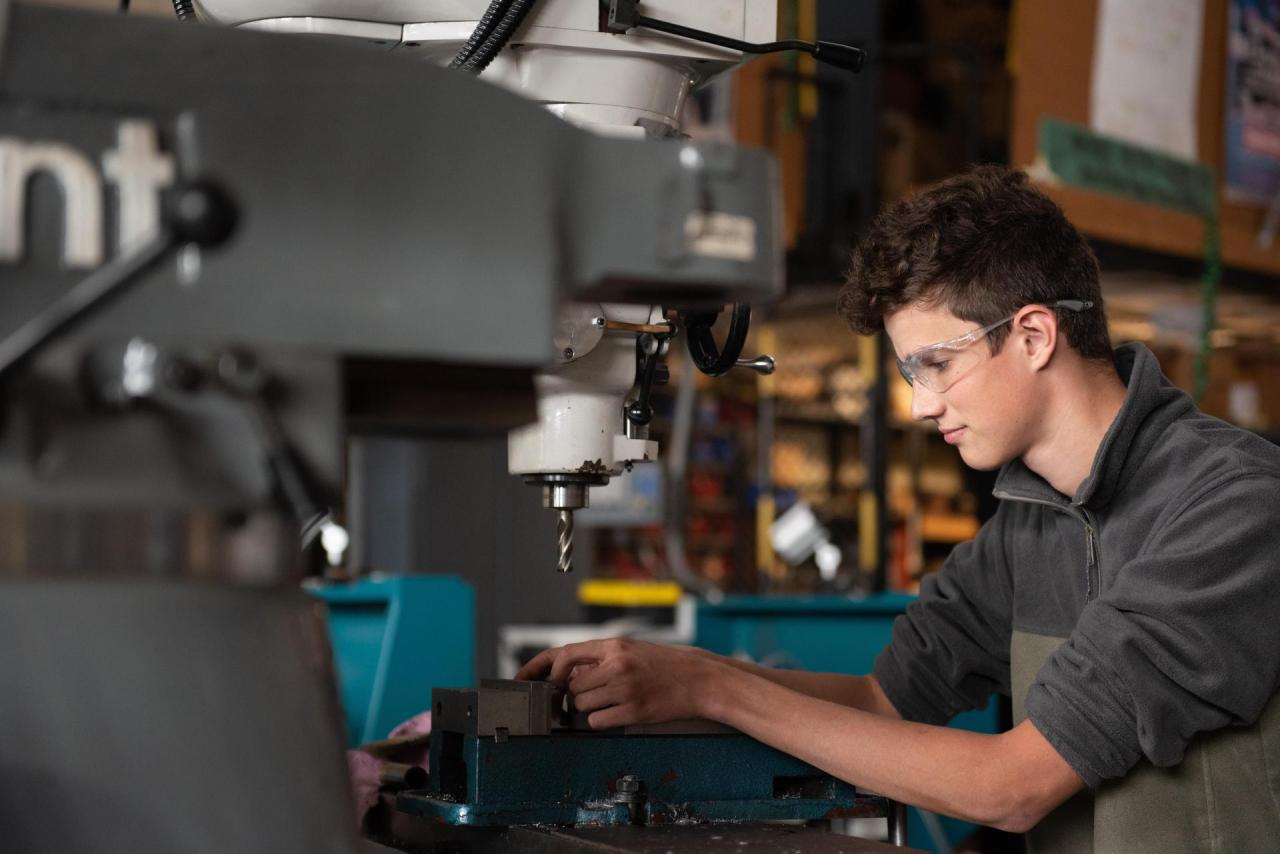
The field of machine tool technology faces a unique set of challenges and opportunities. Understanding these dynamics is crucial for professionals to navigate their careers effectively and capitalize on the growth potential within the industry.
Challenges Faced by Machine Tool Professionals
Machine tool professionals encounter various challenges in their work, ranging from technological advancements to workforce demographics.
- Rapid Technological Advancements: The rapid pace of technological change in manufacturing presents a significant challenge for machine tool professionals. New technologies such as automation, robotics, and advanced machining processes are constantly emerging, requiring professionals to continuously learn and adapt to remain competitive.
- Skills Gap and Workforce Shortages: The manufacturing industry faces a growing skills gap, with a shortage of qualified workers, particularly in skilled trades like machine tool operation. This shortage is partly due to an aging workforce and a lack of interest among younger generations in pursuing manufacturing careers.
- Competition from Overseas Manufacturers: Global competition from countries with lower labor costs and government subsidies poses a challenge for machine tool manufacturers and professionals in developed countries.
- Safety Concerns: Working with heavy machinery and sharp tools inherently involves safety risks. Machine tool professionals must be vigilant about safety procedures and practices to minimize the risk of accidents and injuries.
Opportunities for Growth and Advancement
Despite the challenges, the machine tool industry offers several opportunities for growth and advancement for professionals who are willing to adapt and invest in their development.
- Growing Demand for Skilled Workers: Despite the skills gap, the demand for skilled machine tool professionals remains high. This is driven by factors such as the increasing adoption of automation and the need for highly skilled workers to operate and maintain complex machinery.
- Advancement in Automation and Robotics: The increasing use of automation and robotics in manufacturing creates opportunities for professionals with expertise in these technologies.
- Focus on Sustainability and Green Manufacturing: The growing focus on sustainability and green manufacturing creates opportunities for professionals with expertise in energy-efficient machining processes and sustainable materials.
- Emerging Technologies: Emerging technologies such as additive manufacturing (3D printing) and advanced materials are opening up new frontiers in machine tool technology, creating opportunities for professionals with specialized skills.
Overcoming Challenges and Leveraging Opportunities
Machine tool professionals can overcome challenges and leverage opportunities by adopting a proactive approach to their careers.
- Continuous Learning and Development: Staying abreast of technological advancements is crucial. Professionals can achieve this through formal education, training programs, industry conferences, and professional certifications.
- Developing Specialized Skills: Focusing on developing specialized skills in areas like automation, robotics, or advanced machining processes can make professionals more competitive in the job market.
- Networking and Collaboration: Building relationships with other professionals in the industry through networking events and industry associations can provide access to valuable insights, job opportunities, and collaboration opportunities.
- Embracing Innovation: Being open to new ideas and embracing innovation is essential for professionals to stay ahead of the curve. This can involve exploring new technologies, developing innovative solutions to manufacturing challenges, and participating in research and development initiatives.
Summary: Machine Tool Technology Jobs
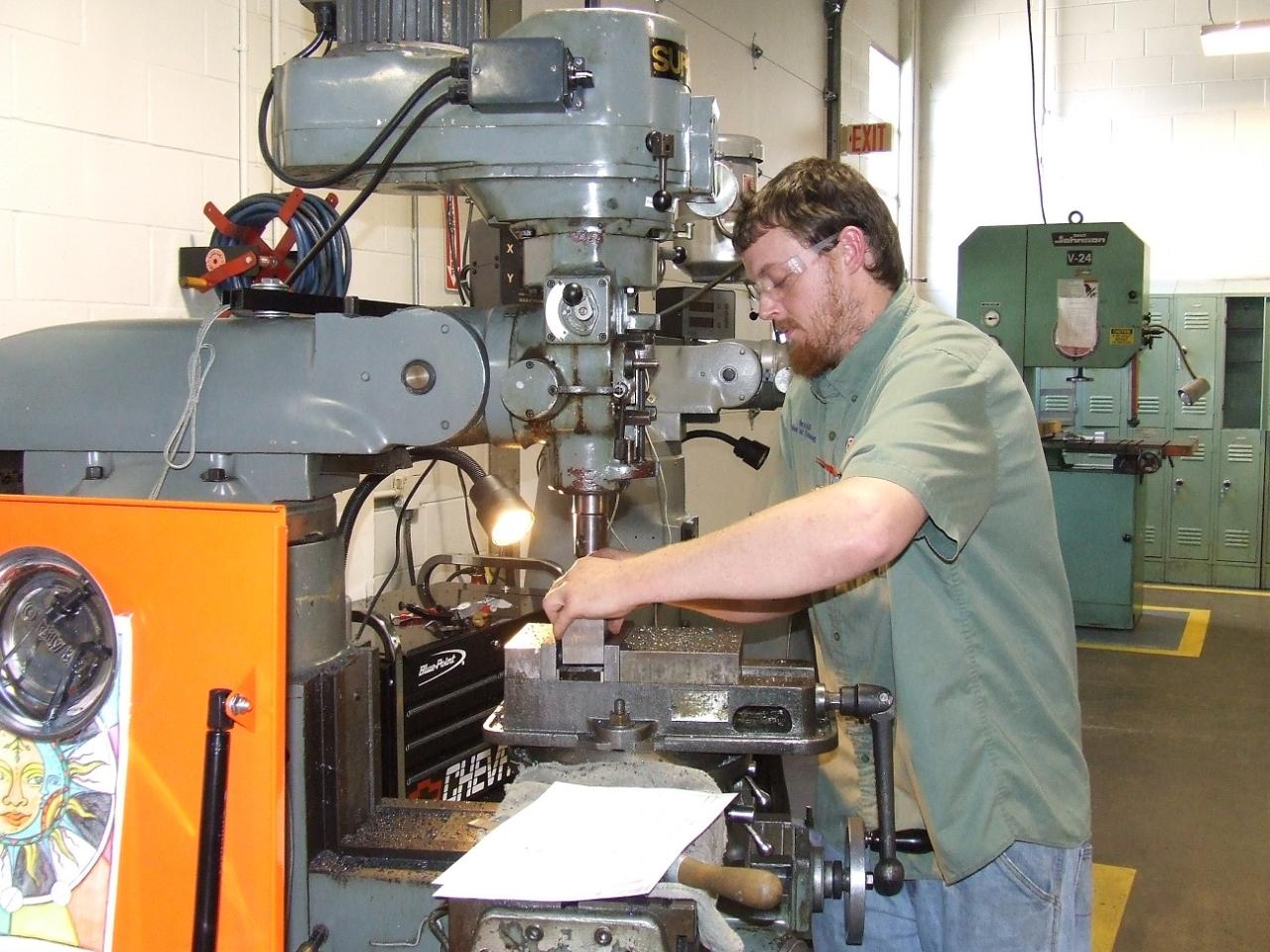
The future of machine tool technology jobs is bright, driven by ongoing advancements in automation, robotics, and artificial intelligence. As manufacturers embrace Industry 4.0, the demand for skilled machine tool professionals will continue to rise. By staying abreast of emerging technologies and honing their skills, individuals can position themselves for success in this dynamic and evolving industry.
Machine tool technology jobs are in high demand, as the manufacturing industry continues to evolve. To succeed in this field, a strong understanding of technology foundations is essential. This includes knowledge of computer-aided design (CAD), computer-aided manufacturing (CAM), and robotics, all of which play a crucial role in modern machine tool operations.

